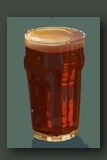Buy a print




ALCOHOL
The University of Washington recently undertook a statistical study tracking 28 million people from 195 countries over 26 years from 1990 to 2016. They found that drinking alcohol is “a major cause of cancer responsible for 2.8 million deaths in 2016”. They confirmed that there was some evidence that “low levels of drinking gave some protection from heart disease and maybe stroke and diabetes.” but concluded that “the benefits did not justify the risks” stating that the safest level of drinking “was none”.
This study goes on to show that a third of the population [2.4 billion people] drink alcohol. 25% of women and 39% of men. Denmark has the most drinkers [with 95.3% women and 97.1 % men] whilst Pakistan has the fewest male drinkers [0.8%] and Bangladesh the least women [0.3%].
The UK government guidelines, issued before the Washington report, suggests we consume less than 14 units each week. They advocate abstinence for 2 or 3 days of the week so 14 units spread over 4 days represents 3.5 units per day. It is, however, hard for a responsible drinker to establish their consumption. This is mainly because they have to multiply the percentage alcohol content with the millilitres drunk to find the number of units.
David Nutt, professor of Neuropsycho-pharmacology at Imperial College, London says that “alcohol is more dangerous than ecstasy and LSD”. He states that the first two drinks target the Gaba receptor which sends chemical messages throughout the brain to inhibit the activity of nerve cells and ‘calms the brain’.
The third and fourth drinks start blocking glutamate, the main excitatory transmitter in the brain. “less glutamate means less anxiety”.
Alcohol also causes a small rise in noradrenaline which suppresses stress at first but increases it in withdrawal.
The body registers these imbalance and attempts to put things right. “Low Gaba function and a spike in glutamate - leads to anxiety” which can take a day or two to return to the status quo. If, however, you drink a lot it might takes weeks or even months to return to normal.













